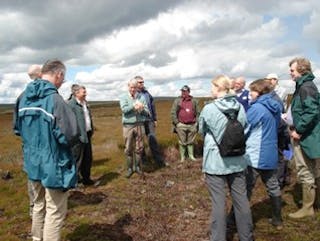Shared Values for the Natural Environment

Researchers
Mark Reed (Principal Investigator) and Alister Scott, Birmingham City University; Jasper Kenter (Project Manager) and Althea Davies (Research Fellow), University of Aberdeen.
Background
Shared Values for the Natural Environment was a £264,000 collaborative research project led by Birmingham City University and the University of Aberdeen, which ran from May 2012 to November 2013. It was part of the two-year long follow-on phase of the 2011 the UK National Ecosystem Assessment (NEA), a Government-led initiative which explored the state, value (economic and social) and possible future of terrestrial, freshwater and marine ecosystems.
Download the project information leaflet
Aim of research
The aims of this study were to:
- establish a clear understanding of shared values in the context of valuing nature
- provide a means to assess these for decision-making at multiple scales
- consider how social processes shape shared values
- test the merit of different monetary and non-monetary techniques for capturing these values for use in decision-making
Method of research
Given that many valued aspects of the natural environment have no direct monetary worth, this project adopted techniques from environmental economics that encouraged participants to estimate the worth of different aspects of the natural environment in monetary terms. The project also adopted non-monetary techniques (e.g. 'Multi-Criteria Evaluation'), which required participants to weigh and rank different aspects of the natural environment against one another.
By employing both monetary and non-monetary approaches, this project considered how engaging people in discussion with one another can help demonstrate and explain shared values in ways that are more useful to decision-makers than the use of monetary outputs or individual preferences alone. Throughout the project, the team also continually and reflexively assessed the extent to which these alternative approaches usefully contributed to decisions about the environment.
Outcomes
By improving our understanding of the differences between individual, shared, plural and cultural values, and how to assess them, this research has provided policy-makers with the evidence and tools necessary to give social impacts much more robust consideration in future policy decisions.